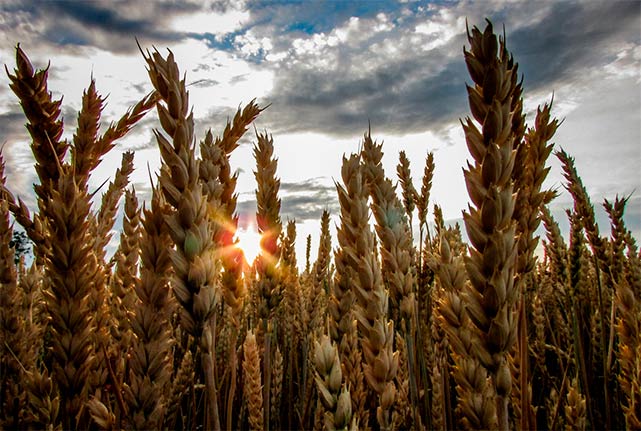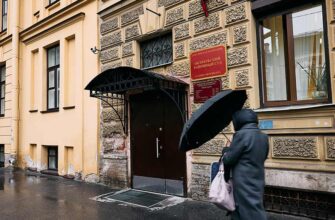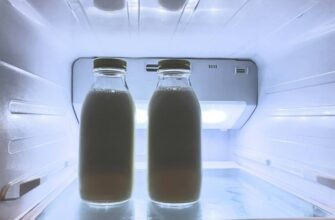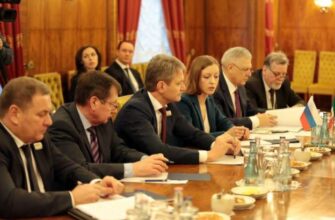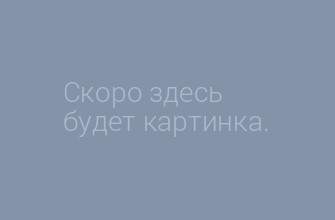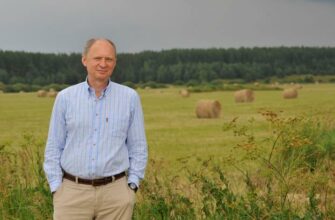Presentation of the Russian market of seeds and plant protection products, together with the largest companies plans, was held at the Association of European Businesses (AEB) on December 21, 2016.
According to Kleffmann consulting company in Russia, presented at a press conference in AEB by its CEO Sophia Treus, the global market for plant protection products (pesticides) in 2015 fell by -9.8%. It will continue to fall in 2016 (forecast -2-3%). The fall of the indicators affected most of all Latin America and Europe, while Russia, along with China and Argentina, is among the countries that escaped the fall.
Sophia Treus also said that: “the Market for agrochemicals is currently in the process of active consolidation. Today TOP-6 plant protection companies in the world (NWR) take 64% of the market. Among the six leaders we see two mergers”.
Russia ranks 11th in the world for the consumption of plant protection products. The growth of the national market in 2016 amounted to +37% in rubles in all segments. This is due to the General progress of Russia agriculture. According to A. Berkovskii, the head of Syngenta CIS and at the same time the Chairman of the Committee of producers of plant protection products, in 2016 30% of companies surveyed farms have expanded acreage, 71% of them used loans.
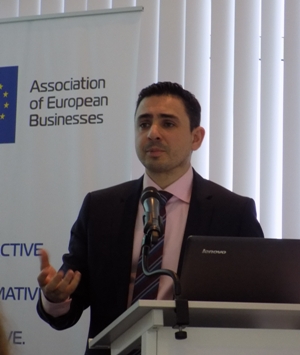
The main growth drivers are fungicides (agents against fungal diseases of plants). According to Kleffmann Group, the share of the Russian market is divided between domestic and foreign companies as 46% / 54%. At the same time, the share of Russian companies in 2014-2015 has increased from 43% in 2013. A similar trend is observed in the seeds.
As for the Russian seed market, it is represented mainly by grain crops that are almost entirely composed from the Russian seed(97%). The cost of imported seeds is significantly higher domestic counterparts.
In addition to the grains, the presence of 3 crops is considerable on the Russian fields: sunflower seeds (7.4 million ha), maize (3.9 million ha), spring rape (0.89 million hectares) and winter rape (0.16 million ha). For these crops, the share of Russian companies is about 47% for maize, 30% for sunflower, 48% canola summer and 26% in winter rapeseed.
The selection of the supplier of the seed is completely determined by the characteristics of farming (Kleffman), but also a guarantee of quality (62%) and productivity (52%), according to a survey conducted by Syngenta.
***
If we characterize the activities of large international companies in Russia, we mention development in two main directions: the opening of plants in Russia and popularization of their innovations in the field of agriculture.
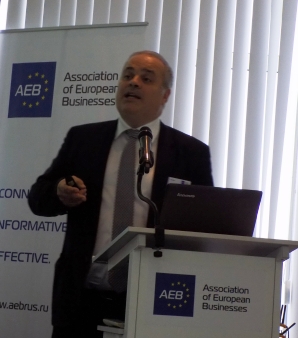
Global companies operating in Russia,are focused on localization of production in Russia, they already have largely localized it, and produce domestic products. The first company which settled in Russia is chemical concern DuPont. Localization of production assets by Syngenta to date is 30%, but together with the Russian manufacturers, in the near future it will be increased to 60% in the seeds of maize and sunflower. Localization of KWS in Russia is 50% for maize, 100% for winter rye. Localization of Bayer CropScience is 30%, but by 2020 it will increase to 50%. In 2016 and 2017 Bayer CropScience plans to invest in Russia about 100 million rubles in the creation of centres for seed processing in Krasnodar, Kursk, Omsk, Kaliningrad, Rostov-on-don, Volgograd and Nizhny Novgorod.
“We care not only for growth, but also for understanding of the need in our products,” said Aleksandr Berkovsky, and his words could spare all manufacturers.
YvesPicquet (BayerCropScience) said that the company’s goal in Russia is the implementation of principles of sustainable development of agriculture of the Russian Federation. This company provides innovation, transfer of know-how and expertise.
V. Druzhina, Director for Eastern Europe in corn and oil of company KWS, The Chairman of the Committee of seed production in the AEB, said that the expenses for scientific-technical development in the industry amount to one-fifth – one-sixth of a turn.
The French company Limagrain, according to its General Director in Russia Andrei Voropay, annually invests 14.6% of turnover in research and development.
One of the forms of popularization of new technologies in agriculture is the seminar. For example, in 2016 the company KWSheld 22 seminars for the largest agricultural enterprises of Russia, DuPont annually conducts about 150 seminars and Bayer CropScience – 100 seminars, but the latter also opens upgraded computer classrooms in the leading agricultural universities in Russia.
